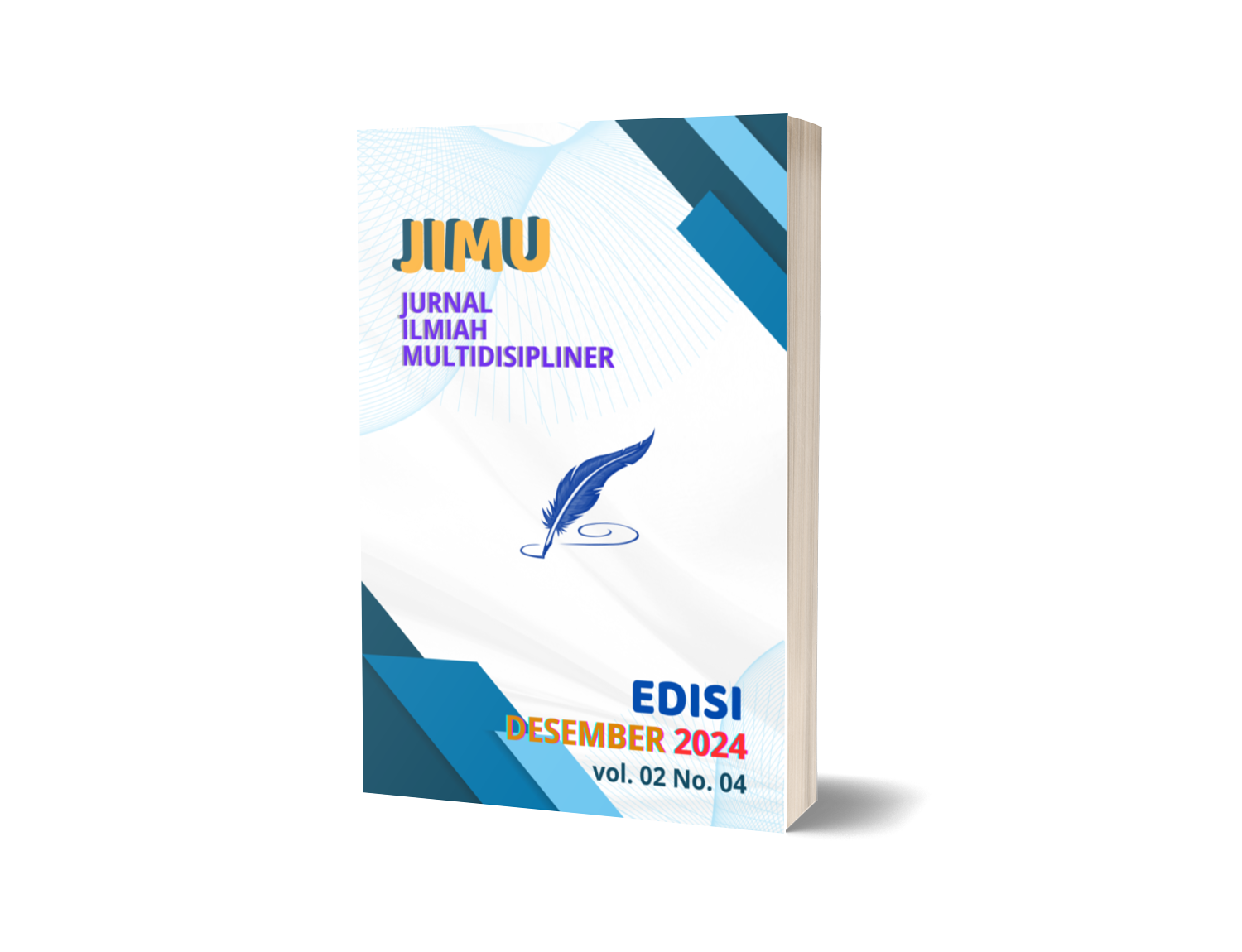Strategi Pembelajaran Matematika Berbasis Etnomatematika untuk Meningkatkan Literasi Numerasi dan Karakter Siswa SD
Kata Kunci:
Strategy, Mathematics Learning, Ethnomathematics, Numeracy LiteracyAbstrak
This study aims to develop and analyze ethnomathematics-based mathematics learning strategies that can improve numeracy literacy and character of elementary school students. The background of this research focuses on the importance of local cultural integration in mathematics learning, which is expected to increase student understanding and engagement. The research method used is qualitative with data collection techniques through observation, interviews, and documentation. The results show that the application of ethnomathematics-based learning strategies not only improves students' numeracy skills, but also strengthens their character through the introduction of local cultural values. The analysis of the results shows alignment with existing educational theories and reinforces the findings of previous research that emphasized the importance of cultural context in mathematics education. The study also identified some limitations, such as limited time and resources, and recommended further research to explore the long-term impact of these strategies. The implications of the results of this study are expected to contribute to educational policies and learning practices in elementary schools
Unduhan
Referensi
Aiken, L. R. (2003). Psychological Testing and Assessment. Boston: Allyn & Bacon.
Borko, H., & Livingston, C. (1989). Cognitive Processes in Teacher Learning. In Educational Psychologist, 24(2), 103-118.
Creswell, J. W. (2014). Research Design: Qualitative, Quantitative, and Mixed Methods Approaches. Thousand Oaks, CA: Sage Publications.
D'Ambrosio, U. (1985). Etnomatematika: A Multicultural View of Mathematics Education. In Mathematics Teacher, 78(5), 392-396.
Engelbrecht, J., & Pournara, C. (2016). Teaching Undergraduate Mathematics: A Guide for New Lecturers. Cape Town: University of Cape Town Press.
Freire, P. (1970). Pedagogy of the Oppressed. New York: Continuum.
Ginsburg, H. P. (2009). The Development of Mathematical Thinking. In Handbook of Child Psychology (Vol. 4). New York: Wiley.
Hiebert, J., & Grouws, D. A. (2007). Effective Teaching for Understanding Mathematics: A Focus on the Teacher. In Handbook of Research on Mathematics Teaching and Learning, 371-404.
Isoda, M. (2007). Etnomatematika: A New Approach to Mathematics Education. In Mathematics Education Research Journal, 19(2), 1-15.
Johnson, D. W., & Johnson, R. T. (2009). An Educational Psychology Success Story: Social Interdependence Theory and Cooperative Learning. In Educational Psychologist, 44(2), 95-105.
Kerslake, D. (1986). Children's Understanding of Mathematics: 11-16. London: Hodder & Stoughton.
Lave, J., & Wenger, E. (1991). Situated Learning: Legitimate Peripheral Participation. Cambridge: Cambridge University Press.
Murniati, M., & Suhardi, S. (2018). Etnomatematika dalam Pembelajaran Matematika di Sekolah Dasar. In Jurnal Pendidikan Matematika, 12(1), 1-10.
NCTM (National Council of Teachers of Mathematics). (2000). Principles and Standards for School Mathematics. Reston, VA: NCTM.
O'Brien, J. (2010). The Role of Culture in Mathematics Education. In Mathematics Education Research Journal, 22(3), 1-15.
PISA (Programme for International Student Assessment). (2018). PISA 2018 Results: What Students Know and Can Do. Paris: OECD Publishing.
Quinn, R. J. (2015). Culturally Relevant Pedagogy in Mathematics Education. In Journal of Mathematics Education, 8(2), 1-15.
Ritchie, J., & Lewis, J. (2003). Qualitative Research Practice: A Guide for Social Science Students and Researchers. London: Sage Publications.
Sembiring, R. E., & Sari, D. (2017). Etnomatematika dalam Pembelajaran Matematika di Sekolah Dasar: Sebuah Tinjauan Pustaka. In Jurnal Pendidikan dan Pembelajaran, 4(1), 1-10.
Tiro, A. (2019). The Impact of Ethnomathematics on Students' Learning Outcomes in Mathematics. In International Journal of Education and Research, 7(3), 1-12.
Udin, U. (2020). Mathematics Learning Based on Local Culture: A Case Study in Indonesia. In Journal of Mathematics Education, 13(1), 1-15.
Vygotsky, L. S. (1978). Mind in Society: The Development of Higher Psychological Processes. Cambridge, MA: Harvard University Press.
Wiggins, G., & McTighe, J. (2005). Understanding by Design. Alexandria, VA: ASCD.
Xu, Y., & Hwang, G. J. (2019). A Review of Mobile Technology in Mathematics Education: A Systematic Review. In Educational Technology & Society, 22(1), 1-15.
Yulianti, Y., & Supriyadi, S. (2021). The Role of Ethnomathematics in Enhancing Students' Numeracy Skills. In International Journal of Instruction, 14(1), 1-12.
Zulkardi, Z. (2002). Developing a Learning Environment for Etnomatematika. In Proceedings ofthe International Conference on Mathematics Education Research, 1-10.









